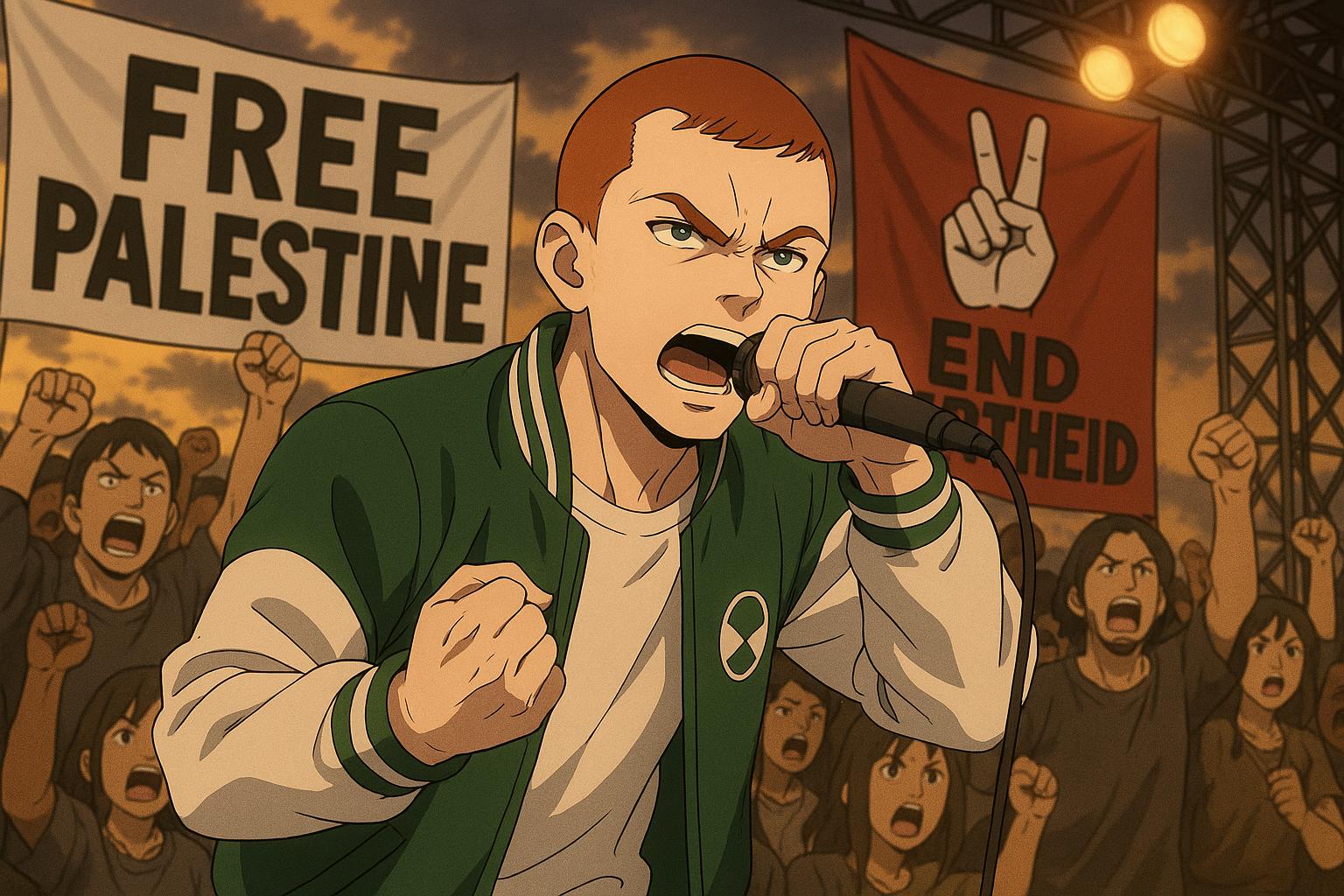Controversial Northern Irish rap trio Kneecap has once again courted polarising attention following a provocative performance at The 100 Club in London. The group, consisting of Mo Chara, DJ Provai, and Moglai Bap, performed to a sold-out crowd that enthusiastically joined in chants such as "Free Palestine," while also echoing the strident lyrics mocking the late former Prime Minister, Margaret Thatcher. This controversy unfolds against a backdrop of legal troubles for member Liam Ó hAnnaidh, who is charged under the UK's Terrorism Act for allegedly displaying a flag supporting Hezbollah during a concert in 2024.
The band's latest set, filled with political jabs, coincided with the release of their new track, "The Recap," which targets current Conservative leader Kemi Badenoch for her role in attempting to block the group’s arts funding. Kneecap's antics, providing a mix of sharp satire and musical rebellion, are seen as a continuation of their penchant for provocative artistry that frequently courts both outrage and admiration. During the performance, Ó hAnnaidh, also known as Mo Chara, addressed police presence in the club, stating, “There’s a lot of police inside this venue tonight, they’re making a lot of money for doing f*** all,” highlighting the band's criticism of the British establishment.
The group's past performances have drawn significant scrutiny, particularly for their outspoken pro-Palestinian stance and references that have been interpreted as endorsing violence. A recording from a previous concert showed a band member stating, "The only good Tory is a dead Tory," raising alarms in the wake of political violence in the UK, notably the murders of MPs Jo Cox and David Amess. While Kneecap issued an apology to the families affected by such tragedies, the backlash has not dissipated, as they face ongoing investigations and public outcry.
Their recent gigs have sparked calls for boycotts and cancellations, particularly as they prepare to perform at prestigious festivals like Glastonbury. Critics, including lawmaker Robert Jenrick, assert that the group's glorification of militant groups undermines public safety and should preclude them from major venues. As the discourse surrounding artistic freedom and the boundaries of political expression continues, Kneecap finds itself at a contentious crossroads, where their messages of Irish identity and solidarity clash with accusations of incitement and hate speech.
Kneecap's artful blend of rap, political commentary, and cultural identity reflects a broader tension within the current landscape of music and activism. With their roots firmly planted in the complex socio-political environment of Northern Ireland, the band encapsulates a form of rebellious creativity that pushes against the norms, igniting conversations on the limits and responsibilities of artistic expression. Despite facing numerous challenges, including cancellations and legal action, their unapologetic approach seems intent on ensuring that their voice resonates amid the debate on freedom, protest, and the ethical implications of art in times of conflict.
As they navigate these turbulent waters, Kneecap remains emblematic of a generation eager to confront prevailing narratives through provocative art. With their forthcoming performances still scheduled, the public's reaction will likely continue to shape not only their career but also the broader discourse on the interplay between music and political expression in today’s society.
Reference Map:
- Paragraph 1 – [1], [2], [4]
- Paragraph 2 – [1], [3], [5]
- Paragraph 3 – [6], [7]
- Paragraph 4 – [2], [3]
- Paragraph 5 – [5], [6]
Source: Noah Wire Services
